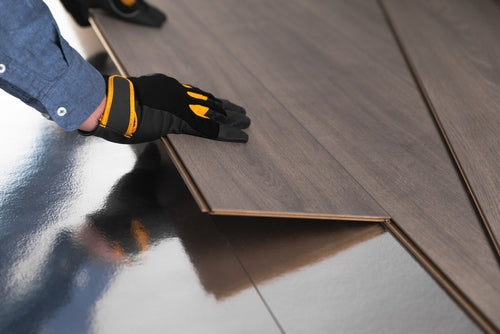
What is a Floating Floor? : The Pros and Cons
Are you looking for a simple and efficient way to install your floor without breaking the bank? If so, floating floors are your saving grace.
From laminate flooring to luxury vinyl floors, floating floors offer a versatile and trendy finish, giving you a plethora of stylish options.
Today, we will dive into the pros and cons of floating floors and how to ensure an efficient installation. Whether you’re a seasoned DIYer or a beginner, floating floors are bound to transform your renovation process into something of ease.
What is a Floating Floor?
A floating floor refers to a method of installation where the floor ‘floats’ above the base surface without being directly fastened with screws, nails, or glue.
Instead, the boards are attached to each other using a click-lock mechanism or tongue-and-groove joints.
This method is simple and time-effective, protecting the integrity of the subfloor through a less invasive installation.
The Pros of Floating Floors
There are many benefits to floating floors for your home. This includes:
1. Cost-effective
Floating floors don’t require extensive subfloor preparation or a large number of tools, reducing the overall cost.
2. Ease of installation
This simplistic installation method means that you don’t need to hire a professional to get the job done.
The click-and-lock or tongue-and-groove system is quick and easy to install. The floorboards simply connect together like puzzle pieces, making them ideal for beginners.
3. Versatility
Floating floors can be installed over a variety of subfloors, including concrete, wood, and tiles.
From commercial to residential buildings, floating floors can be used for various types of flooring material.
4. Flexible expansion and contraction
The floating floor method is designed to allow the floor to expand and contract according to temperature fluctuations without warping.
This ensures longevity and stability, making it ideal for warmer climates or excessive heating during the winter.
5. Minimal impact on the subfloor
Whether you’re renting or you want to preserve your subfloor, floating floors prevent damage to the surface underneath.
This is especially beneficial for temporary installations or to preserve historical elements in a property.
6. Easy repair
If an area of your floor becomes damaged, you can easily replace the affected planks without having to rip up the entire floor.
This is both budget-friendly and time-effective.
7. Suitable with underfloor heating
Floating floors are highly compatible with underfloor heating as they allow for efficient heat distribution.
This can enhance thermal comfort and performance in the home.
The Cons of Floating Floors
While the floating floor method offers an abundance of advantages, there are some downsides to consider that may affect your choice of installation:
- Potential noise pollution: Since floating floors aren't attached to the subfloor, they can create a hollow sound when walked upon.
- Decreased durability: Floating floors are typically installed with lower-quality materials and may not be as solid underfoot.
- Impact on property value: As floating floors are viewed as a temporary solution, homeowners looking to sell may not be able to increase their property value as much compared to other flooring options.
How to Ensure an Efficient Installation
While there are some disadvantages to consider, we have good news for you. There are various tips and tricks you can use to bypass the cons of floating floors.
Follow the tips below for an efficient installation:
- Improve acoustic properties: To avoid the hollow sound of floating floors, install a dense underlay. Rubber or high-quality foam provides better sound insulation, preventing a noisy floor.
- Enhance durability: Choose high-quality flooring such as engineered wood or high-density laminate. This provides greater resistance to wear and tear. Clean your floors regularly and avoid heavy furniture to increase their lifespan.
- Maintain property value: To mitigate the decrease in property value, choose high-quality flooring such as luxury vinyl or high-end laminate. This offers both beauty and durability.
Choose High-Quality Flooring with Mersey Flooring
For added durability and aesthetically pleasing floors, we specialise in bringing high-quality solutions straight to your door.
From beautiful laminate floors to tile-effect options, we have an abundance of styles and designs to choose from.
These can be installed using the floating floor method, perfect for quick and easy installation.